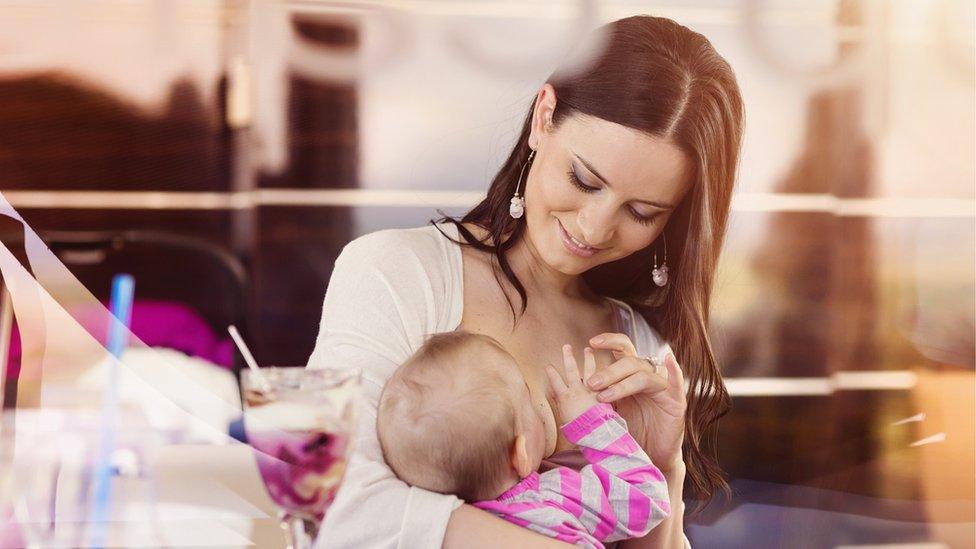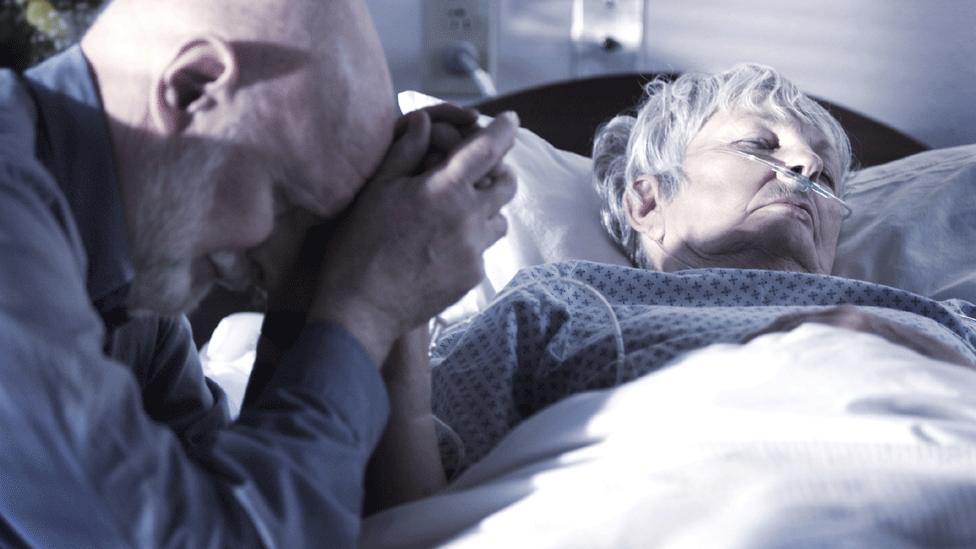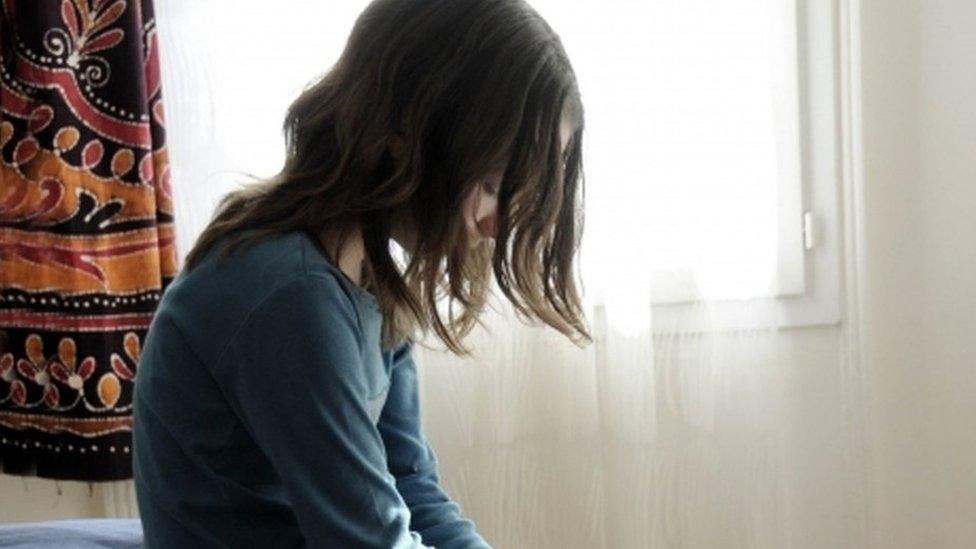Health of children in Scotland 'among worst in Europe'
- Published
The report calls for bold action to tackle health inequalities among children in Scotland
The health of children in Scotland is among the worst in Europe, according to a major new study.
An "alarming" gap between rich and poor is risking the health of the youngest generation, the Royal College of Paediatrics and Child Health (RCPCH) report warns.
It calls for bold action on smoking, obesity and child poverty.
The Scottish government said it was committed to ensuring the best start in life for children.
And it hailed progress in changing relationships with tobacco and alcohol, with the report showing a decline in the number of young people smoking and drinking.
Critics said the report proved that "dramatic action" was needed to safeguard the health of children in Scotland.
The key findings of the study include:
More than 210,000 children live in poverty in Scotland;
28% of children are overweight or obese;
Around 400 infants, children and young people die each year - a significant number of deaths were potentially avoidable;
More than half (53%) of new mothers in wealthy areas exclusively breastfeed their children for six weeks, but that figure drops to 15.4% in the most deprived areas.
Almost 30% of pregnant women in the most deprived areas are smokers, compared to just 4.5% in wealthier parts of the country.
The report looks at 25 health rates including asthma, diabetes and epilepsy, as well as obesity, breastfeeding and mortality, to provide a snapshot of health and wellbeing.
It says Scotland leads the way with high vaccination rates, few cases of tooth decay and a decline in suicide rates among young people.
But the report adds: "Child health in Scotland is amongst the poorest in western Europe."
It found that children who live in poverty in Scotland are more likely to be overweight or obese, have a mother who smoked during pregnancy, and be exposed to alcohol or drug misuse.
Dr Steve Turner, RCPCH officer for Scotland, told BBC Radio Scotland's Good Morning Scotland programme: "We are making progress. Children are healthier now than they were 10, 20 years ago but compared to other countries in the EU, we're not doing so good.
"Our improvements are slower. And the focus here has to be on the inequalities. We live in a society where the health of children in the most affluent communities is remarkably good and comparable to the best levels of health anywhere else in the world.
"But if you look at the state of health of children in our poorest communities, the story is pretty rubbish. We have to do better for these children."
He highlighted Scotland's good vaccination rates and a falling number of suicides. But he added: "The overall picture is rather bleak and there's an awful lot the government needs to do."
Dr Turner said government should consider children every time they put a new policy in place and he called on ministers to implement more child health targets.
'Healthy lifestyle'
"I would encourage them to consider setting other targets which can be measured and have a deadline," he said.
"So for example, a target to reduce obesity by a certain proportion by 2020, a target to reduce child deaths by 2020. We can't just sit tight and watch these numbers going the wrong way."
He said government, health care services, social services and individuals needed to take responsibility for improving children's health.
"Doing nothing is not an option," he said. "We have to be passionate about our children. We have to look after them, we have to nurture them, we have to give them an environment that will be good for them."

More than half of women in wealthier areas of Scotland breastfed their babies for at least six weeks, the report found
The RCPCH report recommends extending the smoking ban to school grounds, sports fields and playgrounds, raising awareness of the benefits of breastfeeding, and measuring child health rates more regularly.
It suggests taking steps to implement 20mph zones in built up areas to create more safe places for children to walk, cycle and play, and to reduce the proximity of fast food outlets to schools, colleges and leisure centres.
John Dickie, the director of the Child Poverty Action Group in Scotland, suggested increasing child benefit payments by £5 a week.
That move would lift 30,000 children out of poverty and improve their health as a consequence, he told BBC Radio Scotland.
"The fundamental problem is poverty and the fundamental solution is about ensuring that fewer families in Scotland are living in poverty," he added.
Public Health Minister Aileen Campbell said she discussed the report with its authors last week.
'Steely focus'
Speaking on Good Morning Scotland, she defended the government's record, pointing to success in tackling smoking and in increasing early years childcare provision.
She said: "We're taking actions in all areas already but what we need to do is work out where more action is required.
"The first minister has also outlined in her programme for government that we'll be taking forward a child poverty bill, that's in stark contrast to the UK government's approach around repealing child poverty targets."
She said she was "refreshing" the government's strategy on obesity and it would shortly be put out to consultation.
Asked whether the government would consider topping up child benefit, she replied: "We are wanting to do what we can around the new powers that we're getting around welfare reform.
"We're already mitigating the impacts of the bedroom tax, we're already doing a number of things to soften the blow of welfare reforms in the UK.
"What we need to do with the new powers is make sure that those powers can maximise household budgets, can maximise the opportunities that our young people have in life and make sure we have a steely focus on ensuring that young people get their fair chance to flourish, and make improvements on the statistics that we see today"
What are opposition parties saying?
However, the Scottish government came in for criticism from opposition parties.
Miles Briggs, of the Scottish Conservatives, said it was proof that the SNP was doing little to tackle key health issues across Scotland.
He added: "It can hit back with all the spin it wants, but the truth of the matter is that the SNP has been in charge for ten years now and these hugely concerning findings lie firmly at the Nationalists' door.
"It's evident the SNP is unable to create credible plans for improvement, but it must reflect very seriously upon the recommendations included in the RCPCH report."
Scottish Labour's inequalities spokeswoman Monica Lennon described the findings as "simply appalling".
"This report highlights the failings of the SNP's decade in power to halt the impact deprivation has on a raft of health and wellbeing issues from smoking to breastfeeding," she said.
"Another £327m of cuts to schools and social care departments across Scotland will only make this worse. We need to take a different path."
- Published17 November 2016

- Published16 November 2016

- Published6 September 2016
